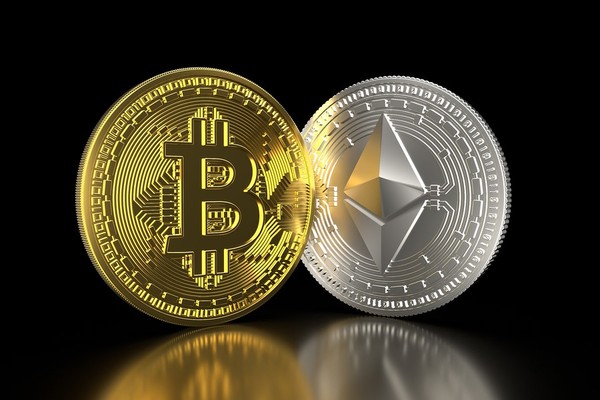Best Blockchain Stocks, Rated and Reviewed for 2024

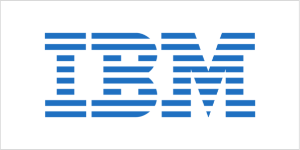
IBM (IBM)
IBM has established itself as a major player in the enterprise blockchain solutions space.
Read our review

J.P. Morgan (JPM)
J.P. Morgan is the largest investment bank in the world.
Read our review
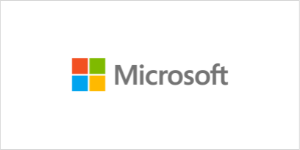
Microsoft (MSFT)
Microsoft has become another major player in the blockchain industry with its cloud-based Azure Blockchain-as-a-Service platform.
Read our review

Goldman Sachs (GS)
Goldman Sachs is one of Wall Street’s leading investment banks.
Read our review
Many people believe that the only way to invest in the booming blockchain industry is to buy digital currencies and crypto assets, but there is another way to build wealth. Investors can buy stock in traditional technology companies that are investing heavily in blockchain. In this article, we’ll review our top picks for blockchain stocks, which we also call “block stocks.”
Blue Chip Stocks
| Market Capitali-zation | Share Price | Dividend Yield (%) | Earnings Per Share | Blockchain Focus | BMJ Score | |
| IBM (IBM) | $128.4B | $147.74 | 4.47 | $6.09 | 4 | 4.5 |
| Microsoft (MSFT) | $1.8T | $241.22 | 1.13 | $9.29 | 3 | 4.5 |
| Goldman Sachs (GS) | $117.3B | $379.20 | 2.64 | $12.50 | 2 | 4.5 |
| J.P. Morgan (JPM) | $402.8B | $133.84 | 2.99 | $11.55 | 2 | 4.5 |
| Nvidia (NVDA) | $470B | $154.90 | 0.1 | $3.73 | 3 | 4.5 |
| Mastercard (MA) | $363.6B | $343.69 | 0.57 | $10.10 | 3 | 4.5 |
| Inter-continental Exchange (ICE) | $60.6B | $104.21 | 1.56 | $5.42 | 4 | 4.0 |
| Oracle (ORCL) | $239.2B | $79.83 | 1.61 | $2.11 | 2 | 3.5 |
| Nasdaq (NDAQ) | $30.53B | $65.52 | 1.22 | $2.22 | 3 | 3.5 |
| Seagate (STX) | $62.9B | $54.57 | 5.13 | $5.22 | 2 | 3.5 |
| Overstock (OSTK) | $1.1B | $24.19 | 0 | $0.23 | 4 | 3.0 |
| Advanced Micro Devices (AMD) | $13B | $73.57 | 0 | $1.62 | 4 | 3.0 |
| Coinbase (COIN) | $12.63B | $45.26 | 0 | $9.78 | 5 | 3.0 |
| Block (SQ) | $48.4B | $67.99 | 0 | -$0.17 | 4 | 2.5 |
Data taken from Yahoo Finance and Google Finance.
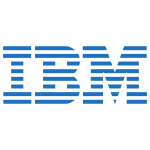 IBM (IBM)
IBM (IBM)
IBM has established itself as a major player in the enterprise blockchain solutions space.
The New York-based technology powerhouse provides a Blockchain-as-a-Service (BaaS) solution and has been involved in a range of DLT trials across the globe since at least 2017.
IBM’s permissioned blockchain solution has been implemented by dozens of companies across various industries, including banking and financial services, supply chain, healthcare, and government. The tech giant offers industry-oriented solutions like Blockchain Transparent Supply, which is designed for supply chain management, and IBM Food Trust, a blockchain-based solution that benefits participants in a food ecosystem.
Some of the companies implementing IBM’s blockchain solutions are:
- Renault – the French automaker built the XCEED blockchain project, which is used to process millions of automotive compliance documents.
- IPwe – the global IP platform uses IBM’s blockchain and Watson AI solutions to tokenize patent assets and churn big data.
- The Home Depot – the company gains real-time visibility into its inventory throughout the shipping and receiving processes.
Despite the success of IBM Blockchain, some of the company’s major DLT projects have shown signs of infeasibility. IBM and shipping giant Maersk announced in November 2022 that their joint blockchain platform TradeLens would be shut down at the beginning of 2023. The platform requires full global industry collaboration, which has not been achieved. (BMJ Score: 4.5)
 J.P. Morgan (JPM)
J.P. Morgan (JPM)
J.P. Morgan is the largest investment bank in the world. While its core business is banking, the Wall Street giant has also been heavily involved in the development of new financial technology.
J.P. Morgan’s main venture into blockchain technology was its enterprise-ready disunited ledger platform Quorum, which provides “high speed and high throughput processing of private transactions” on a permissioned blockchain.
The banking giant sold Quorum to ConsenSys in 2020 and launched its proprietary blockchain platform ONYX a few months later. The inaugural project on ONYX was its proprietary coin, JPM Coin, which acts as a USD-based stablecoin used for payments.
JPM Coin leveraged ONYX’s Coin Systems, but the platform offers three other solutions:
- Liink – a bank-led payment solution that uses Confirm, a global account validation service meant to improve cross-border payments.
- Onyx Digital Assets – a trading platform for digital assets.
- Blockchain Launch – an enterprise-oriented solution helping companies implement blockchain technology for various use cases.
Besides its proprietary blockchain solutions, JPMorgan has explored decentralized finance (DeFi) applications. In November 2022, the bank conducted its first-ever cross-border transaction on DeFi. The trade was facilitated by the Monetary Authority of Singapore’s (MAS) Project Guardian. (BMJ Score: 4.5)
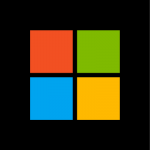 Microsoft (MSFT)
Microsoft (MSFT)
Microsoft has the potential to become another major player in the blockchain industry. Its blockchain journey started with the launch of the cloud-based Azure Blockchain-as-a-Service platform in 2015. Microsoft was the first to offer a cloud-based blockchain solution for businesses and was involved in a wide range of DLT trials across the globe.
However, the tech giant shut down the service in September 2021 and has instead encouraged its partners to migrate to ConsenSys’ Quorum platform, which was acquired from JPMorgan.
Since then, Microsoft has invested in multiple blockchain companies. In 2022, it took part in ConsenSys’ $450 million Series D round. As for the company itself, it has been focusing on the Metaverse trend in recent months more than blockchain. (BMJ Score: 4.5)
 Goldman Sachs (GS)
Goldman Sachs (GS)
Goldman Sachs is one of Wall Street’s leading investment banks.
Even though CEO Lloyd Blankfein has been regarded as a crypto skeptic, Goldman Sachs has been investing heavily in blockchain startups such as Axoni, BitGo, Circle, and Veem, and has even shown interest in cryptocurrencies. For example, it launched a bitcoin derivatives offering for a select group of clients several years ago.
In an op-ed piece published in the Wall Street Journal, Blankfein said that blockchain was more than crypto, and had a bright future. Goldman also has a dedicated page listing the benefits of the technology.
In 2022, the bank got even closer to blockchain and crypto. For example, it allowed a borrower to use bitcoin as collateral for a cash loan and offered over-the-counter (OTC) crypto options trading in partnership with Galaxy Digital.
In January 2023, Goldman launched its new digital asset trading platform GS DAPTM, developed with the help of Digital Asset’s Daml smart contract language and its blockchain protocol Canton. The European Investment Bank became the first user of Goldman’s new platform, issuing the first fully-digital bond on blockchain.
Meanwhile, Goldman is looking to spend millions on buying crypto firms at a bargain after the collapse of FTX. (BMJ Score: 4.5)
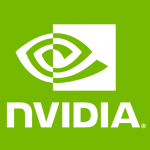 Nvidia (NVDA)
Nvidia (NVDA)
Nvidia, listed on NASDAQ as NVDA, is another major semiconductor and GPU manufacturer, competing with AMD and Intel. Nvidia is also a leader in artificial intelligence (AI) hardware and software.
While Nvidia manufactures a wide range of products, the cryptocurrency community is interested in it for providing mining processors, including GPUs.
It seems that the impact of crypto mining on the company’s revenue has been larger than it previously admitted. In May 2022, Nvidia paid $5.5 million to settle the accusations of the US Securities and Exchange Commission (SEC), which claimed the company had failed to inform investors about how much GPU revenue relied on crypto miners.
Still, Nvidia has GPUs that have been designed specifically for crypto mining. One example is NVIDIA Cmp Hx, which was designed for Ethereum mining, although that makes less sense now that the blockchain network has adopted the Proof of Stake (PoS) algorithm. (BMJ Score: 4.5)
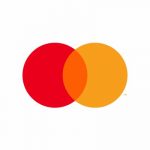 MasterCard (MA)
MasterCard (MA)
New York-based MasterCard is the world’s second-largest payment processor after Visa.
The company has been involved in several blockchain and crypto initiatives, and was an early supporter of the technology.
MasterCard’s Crypto Card Program helps businesses and merchants accept digital currency for everyday transactions. The company also offers crypto consulting services and is helping central banks with the design of central bank digital currencies (CBDCs).
The Start Path Crypto is a global engagement program to support blockchain, crypto and digital asset startups jumpstart their projects and scale. In November 2022, the company’s crypto accelerator added seven more startups, some of which focus on Web3 solutions.
In October 2022, MasterCard announced the launch of Crypto Source, a new crypto-related program to let banks offer cryptocurrency trading solutions to their clients. (BMJ Score: 4.5)
Intercontinental Exchange (ICE)
The Intercontinental Exchange (ICE), which owns the New York Stock Exchange, is one of the most interesting financial stocks that offer blockchain exposure.
In 2018, ICE launched a bitcoin futures trading platform called Bakkt. This is the first exchange to offer bitcoin futures with physical delivery. Bakkt was spun off as a separate public company, and we’ll discuss it separately below.
Besides launching Bakkt, ICE made a strategic investment in blockchain firm tZERO at the beginning of 2022. As part of the investment, ICE’s Chief Strategy Officer David Goone became CEO of tZERO and joined the company’s Board of Directors. (BMJ Score: 4.0)
Oracle (ORCL)

Technology giant Oracle has joined the likes of IBM in delivering a cloud-based Blockchain-as-a-Service solution.
Oracle Blockchain leverages the blockchain to enable businesses to perform secure identity authentication, information sharing, smart contract creation, and more. Like IBM Blockchain, Oracle Blockchain is built on the open-source platform Hyperledger Fabric. Oracle’s solution has been implemented across various industries, including banking, retail, manufacturing and logistics, healthcare, food, education, and government.
In May 2022, Oracle announced that its blockchain solution would support non-fungible tokens (NFTs), and in January 2023, the company said that it would focus on blockchain interoperability thanks to a release of a new update. (BMJ Score: 3.5)
NASDAQ (NDAQ)
Nasdaq is a pioneer in blockchain adoption among publicly-traded financial services companies.
In 2015, the New York-based stock exchange launched a blockchain-powered private share market called Linq. It continues to explore blockchain technology to improve its services as an exchange.
The stock exchange operator offers the Nasdaq Blockchain Economy Index, which tracks about 60 companies that support or use blockchain technology. On a side note, the index is at an all-time high as of this writing.
Interestingly, Nasdaq’s “Marketplace Technology” is offering a range of solutions that are currently used by at least nine cryptocurrency exchanges. (BMJ Score: 3.5)
Seagate (STX)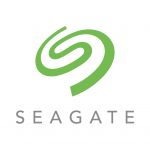
Seagate is a market-leading data storage company that has also expanded into blockchain technology.
The technology company partnered with IBM in 2019 to leverage blockchain to fight counterfeit hard drives.
Seagate is also invested in Ripple Labs, the company behind one of the largest cryptocurrencies by market cap.
In 2022, Protocol Labs, the company behind Filecoin – a decentralized file-sharing protocol, launched an alliance to help companies accelerate the transition to Web3. Seagate is one of the founding partners along with Ernst & Young (EY) and Advanced Micro Devices (AMD), which we’ll discuss below.
Filecoin enables users to buy or sell computer storage on a decentralized network for data storage and sharing. The service is meant to be an alternative to Amazon Web Services.
It remains to be seen whether Seagate will be able to expand its blockchain strategy, as the company is forced to cut jobs and faces accusations of violating export sanctions. (BMJ Score: 3.5)
 Overstock (OSTK)
Overstock (OSTK)
Online retailer Overstock is a pioneer for bitcoin and blockchain adoption.
It was one of the first major businesses to accept bitcoin back in 2014 and has since evolved into a de facto blockchain company, although it still maintains its online retail stores.
Through its subsidiary Medici Ventures, it has become a major investor in blockchain companies and launched tZERO, a tokenized securities trading platform. In 2021, tZERO launched a new version of its crypto trading platform, adding more coins and digital assets and increasing the settlement time.
Overstock used its platform to tokenize dividends of its preferred stock. (BMJ Score: 3.0)

Coinbase (COIN)
Coinbase Global, Inc, listed on NASDAQ with the ticker COIN, operates the largest cryptocurrency exchange in the US, handling about $1 billion in trading volume per day.
While the spot exchange platform is the flagship product, Coinbase also provides other crypto-related services, including borrowing against crypto collateral, a credit card to spend crypto, a non-fungible token (NFT) solution, a yield product, and an off-line crypto custody solution for businesses, among others.
As of today, Coinbase has almost 100 million verified users from more than 100 countries.
The company was founded in 2012 by Brian Armstrong, a former AirBnB engineer. It was listed on NASDAQ in April 2021 via a direct stock listing. (BMJ Score: 3.0)
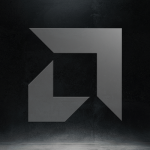 Advanced Micro Devices (AMD)
Advanced Micro Devices (AMD)
Advanced Micro Devices, commonly referred to as AMD, is a market-leading GPU manufacturer.
AMDs graphics cards have become popular among miners who use GPUs to mine digital currencies, which makes this stock an indirect play on the potential future success of digital currency mining.
The company even introduced a set of “blockchain compute solutions” for digital currency miners and has a dedicated page explaining the technology.
In 2021, AMD CEO Lisa Su downplayed the company’s role in cryptocurrency mining, although the ‘crypto winter’ in 2022 likely affected AMD’s stock price, which fell over 55%. (BMJ Score: 3.0)
 Block (SQ)
Block (SQ)
Block Inc is a US-based tech company founded by former Twitter CEO Jack Dorsey and Jim McKelvey. The company rebranded in 2021 when it replaced its previous name Square. Nevertheless, Block is still trading on the NYSE with the ticker SQ.
Block offers a payments platform aimed at small and medium businesses (SMEs), helping them to accept credit card payments and use mobile phones or tablet computers as payment registers for their point-of-sale systems.
Jack Dorsey has been an early supporter of blockchain, which may explain Square’s exposure to the crypto industry. The company purchased $50 million worth of BTC before the rally that sent crypto prices to their all-time highs. It eventually extended the exposure to a total of about 8,000 BTC.
It has a dedicated crypto project called Spiral, formerly known as Square Crypto. The company has been working on projects related to decentralized finance (DeFi) and crypto mining. (BMJ Score: 2.5)
Small Cap Stocks
| Market Capitalization | Share Price | Dividend Yield (%) | Earnings Per Share | Blockchain Focus | BMJ Score | |
| Northern Bitcoin (NB2) | $275.07M | €8.80 | 0 | €12.26 | 5 | 3.0 |
| HIVE Blockchain (HIVE) | $392.45M | $2.24 | 0 | $0.81 | 5 | 2.5 |
| Bakkt Holdings (BKKT) | $504.3M | $1.84 | 0 | -$0.89 | 5 | 2.0 |
| DigitalX (DCC) | $4.45B | AUD $0.03 | 0 | AUD $0.010 | 5 | 2.0 |
Data taken from Yahoo Finance and Google Finance.
 Northern Bitcoin (NB2)
Northern Bitcoin (NB2)
Northern Bitcoin is a German digital currency mining company traded on the Frankfurt stock exchange.
Northern Bitcoin’s mission is to provide sustained and profitable infrastructure to bitcoin and its blockchain using renewable resources.
The whole crypto mining sector was heavily affected by the bearish mood in the crypto market in 2022, and Northern was no exception. Nevertheless, the company released solid financials as of 2023.
In fiscal 2022, the company mined 2,798 bitcoin, up 315% compared to 2021. BTC mining revenue reached 77.7 million euros in fiscal 2022. Northern sold over 3,000 during the year for an average price of 23,849 euros.
The company has approximately 3.6 exahash per second (EH/s) of computing power dedicated to BTC mining.
At the end of 2022, Northern CEO Aroosh Thillainathan commented to the company’s financial situation in a letter to shareholders:
“Northern Data is not carrying financial debt and therefore has access to the unique opportunity to consolidate and expand our current position in BTC mining while scaling cloud solutions and colocation services in parallel. We see significant opportunities in the HPC (high-performance computing) markets we are targeting.” (BMJ Score: 3.0)
 HIVE Blockchain (HIVE)
HIVE Blockchain (HIVE)
HIVE Blockchain is a blockchain technology infrastructure company based in Vancouver, Canada.
The Toronto Stock Exchange-listed company was founded as a partnership between Genesis Mining – a market leader in cloud mining – and the Foire Group, and its main focus is digital currency mining, which it conducts in locations in Sweden, Iceland, and Norway.
At the beginning of 2023, HIVE released its financials, which helped the company’s stock gain over 20% in a matter of days. In December 2022 alone, the company produced 213.8 bitcoin, gaining over $3 million of income on top of that thanks to energy price hedging and its grid balance strategy. HIVE produced crypto assets with a value of over 4,700 bitcoin in 2022, up 18% from the previous year.
While the company has many ASIC miners from Bitmain, it is also using its proprietary miner built in partnership with Intel. HIVE BuzzMiner is operational and will replace older legacy ASICs as it’s more efficient. The company has already deployed over 1,400 of these new devices out of a total of 5,800 units. (BMJ Score: 2.5)
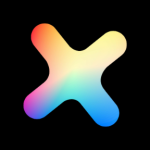 DigitalX (DCC)
DigitalX (DCC)
DigitalX – listed on the Australian Stock Exchange – provides blockchain consulting and digital asset management for institutional investors.
The company started in 2014 as a crypto miner, accounting for about 2% of bitcoin’s hash power at its peak. In 2017, DigitalX started to offer advisory and smart contract development services to blockchain projects looking to raise capital. The so-called Initial Coin Offerings (ICOs) was a big trend back then. Following a strategic review in 2019, the company updated its vision and now focuses on crypto funds management and the development of blockchain-enabled products for capital markets applications.
As of 2023, DigitalX plans to accelerate the transition to Web3 in Australia and reduce the carbon footprint of cryptocurrency. (BMJ Score: 2.0)
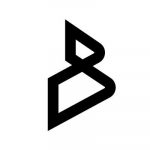 Bakkt Holdings (BKKT)
Bakkt Holdings (BKKT)
Bakkt Holdings is a digital asset platform launched in 2018 by ICE, which we discuss in our blue chips list. The company trades separately on the NYSE with the ticker BKKT.
The platform enables clients to buy, sell, convert, and spend cryptocurrencies. Its client base consists of merchants, retailers, and financial institutions.
Bakkt was the first company to offer Bitcoin futures with physical delivery.
The company has extended the range of crypto products and services, which now include Crypto Connect, an app that allows customers to integrate crypto with buy, sell, and hold capabilities. It also offers Crypto Rewards, Crypto Payout, Crypto Custody, and Bakkt Pay, among others.
Bakkt’s crypto payment and reward solutions have been developed in collaboration with MasterCard, with the two companies partnering at the end of 2021.In November 2022, Bakkt entered into an agreement to acquire Apex Crypto, a subsidiary of Apex Fintech Solutions. Bakkt is expected to pay $200 million for the acquisition. (BMJ Score: 2.0)
Mining Stocks
| Market Capitalization | Share Price | Dividend Yield (%) | Earnings Per Share | Blockchain Focus | BMJ Score | |
| Riot Blockchain (RIOT) | $1.07B | $4.46 | 0 | $0.11 | 5 | 2.5 |
| Hut 8 Mining (HUT) | $604.3M | $1.24 | 0 | -$0.19 | 5 | 2.0 |
| Marathon Digital Holdings (MARA) | $1.02B | $7.47 | 0 | -$1.30 | 5 | 2.0 |
| Bitfarms (BITF) | $343.78M | $0.65 | 0 | $0.14 | 5 | 2.0 |
| Bit Digital (BTBT) | $114.2M | $1.00 | 0 | $0.07 | 5 | 2.0 |
| Cipher Mining (CIFR) | $292.06M | $0.89 | 0 | -$0.41 | 5 | 2.0 |
Data taken from Yahoo Finance and Google Finance.
 Riot Blockchain (RIOT)
Riot Blockchain (RIOT)
Riot Blockchain, Inc is a US-based bitcoin mining company, which focuses on expanding its mining operations by increasing its bitcoin mining hash rate.
The company, which trades on NASDAQ with the ticker RIOT, was formerly known as Bioptix, and it was known for holding veterinary products patents and researching new methods to test for diseases. It rebranded in 2017 to Riot Blockchain and changed its business direction, pushing the share price to record levels at the time.
In the first quarter of 2022, Riot saw mining revenue surging to a record $57.9 million compared to $23.2million in the same period in 2021, as the company produced a record 1,405 BTC, which is almost three times more than in Q1 2021. (BMJ Score: 2.5)
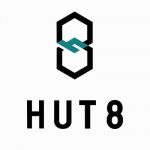 Hut 8 Mining (HUT)
Hut 8 Mining (HUT)
Hut 8 Mining is listed on the Toronto Stock Exchange (TSE) in Canada as well as on NASDAQ, trading with the ticker HUT in both cases. The Toronto-based company is one of the largest bitcoin and Ethereum miners in the world.
Founded in 2011, it is also one of the oldest entities maintaining the bitcoin network.
In 2022, the company mined 3,568 BTC, keeping them all in self-custody in accordance with the long-standing hodl philosophy of the company. At the end of 2022 Hut 8 held 9,086 BTC, a 65% increase over the end of 2021. (BMJ Score: 2.0)
 Marathon Digital Holdings (MARA)
Marathon Digital Holdings (MARA)
Las Vegas-based Marathon Digital Holdings, Inc was founded in 2010 and currently engages in mining cryptocurrencies, including bitcoin. The company trades on NASDAQ under the ticker MARA.
The company was formerly known as Marathon Patent Group, Inc. and rebranded in February 2021.
In the first three months of 2022, Marathon produced 1,259 bitcoin and generated revenue of $51.7 million, up 465% from the same period in 2021.
Last year, MARA was added to the Russell 2000 Index, which tracks 2,000 small-cap public companies. (BMJ Score: 2.0)
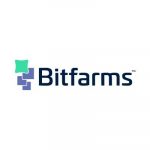 Bitfarms (BITF)
Bitfarms (BITF)
Bitfarms Ltd is a Toronto-based cryptocurrency mining company focused mainly on bitcoin. It is traded on Canada’s TSE as well as on NASDAQ.
Bitfarms, founded in 2017, manages one of the largest bitcoin mining operations in North America, boasting a hashrate of 4.2 EH/s as of the end of September 2022. At the time, the company held $36 million in cash and 2,064 BTC valued at about $40 million.
The company operates five facilities in Québec, Canada, with the operations being powered by clean and cheap hydroelectricity. Recently, it extended its operations to Washington, US.
In the first nine months of 2022, the company mined 3,733 BTC, exceeding the 3,453 BTC mined in all of 2021. Bitfarms’ hashrate rose 17% in the third quarter of 2022 and was up 180% compared to the same period in 2021 to reach 4.2 EH/s as of September 30, 2022. (BMJ Score: 2.0)
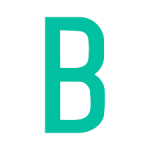 Bit Digital (BTBT)
Bit Digital (BTBT)
Bit Digital is a New York-based cryptocurrency mining company listed on NASDAQ with the ticker BTBT.
The company was founded in 2017 as Golden Bull Limited and rebranded to Bit Digital in September 2020.
As of October 31, Bit Digital owned over 38,500 bitcoin miners and 730 Ethereum miners, with an estimated maximum total hash rate of 2.7 Exahash (EH/s) and 0.3 Terahash (TH/s), respectively.The company’s treasury holdings at the time included 980.0 BTC and almost 6,900 ETH, with a fair market value of about $20.1 million and $10.8 million, respectively. (BMJ Score: 2.0)
 Cipher Mining (CIFR)
Cipher Mining (CIFR)
Cipher Mining is a New York-based crypto mining firm founded in 2021. It is listed on NASDAQ with the ticker CIFR. While it launched its operations during the bitcoin rally with the hope of benefiting from high crypto prices, it was faced with the so-called “crypto winter” in 2022, with bitcoin losing over 60% of its value.
Cipher has been developing and deploying data centers for bitcoin mining in several locations.In September 2022, Cipher said in a filing with the SEC that it was looking to sell $250 million in stock from time to time in at-the-market offering deals. The move shows that Cipher is confident in its operations and is looking to raise more capital to fund its developments. (BMJ Score: 2.0)
Blockchain Stock FAQs
Why Choose Blockchain Stocks over Cryptocurrencies?
While one doesn’t exclude the other, holding stocks may have benefits over buying digital currencies. Stock investors are eligible to hold voting rights or, in some cases, a portion of the company’s profits in the form of dividends.
Also, the price of a stock is less volatile and potentially more predictable compared to the price of most digital assets, excepting stablecoins, which have their price pegged to fiat currencies or commodities.
Stock investors may argue that public companies are more transparent than crypto projects, which sometimes can be run by anonymous teams. In the US and most other countries, public companies are required by law to provide accurate updates on the financial results and the most important events on a regular basis. This helps investors to perform fundamental analysis and find appropriate times to buy or sell.
What are the Best Blockchain Stocks? (by performance)
While blockchain company stocks can be driven by macroeconomic factors like the rest of the stock market, the higher the degree of blockchain focus, the higher the correlation to the cryptocurrency market. For example, mining companies like Riot Blockchain, Hive, Hut 8, and others show a direct correlation with the price of bitcoin.
Elsewhere, diversified tech businesses, such as IBM or Microsoft, may not be as sensitive to what is happening in the crypto space as they have many other business lines driving their share price.
How can I Buy Blockchain Stocks?
You may start investing in blockchain stocks by registering with a reputable broker that offers an online trading platform with technical analysis tools, available customer support, and educational materials.
In the US, the most popular stock brokers are TD Ameritrade, Fidelity, and E*Trade. Also, there are stock platforms exclusively oriented to retail investors, such as Robinhood. On a side note, Robinhood enables investors to get exposure to both US stocks and cryptocurrencies. It’s also worth noting that most of these stock brokers will also offer spot bitcoin ETFs, where you can get exposure to bitcoin without buying the crypto directly.
What are the Top Blockchain Stocks? (by trade volume)
Usually, the most popular stocks are blue chips, which attract a lot of investors. Nevertheless, some small-cap stocks can see trading volume figures higher than blue chips, especially if the latter have a high share price. For example, IBM’s average daily volume is 4.5 million shares while RIOT’s average daily volume is over 15 million. It happens that IBM’s high price of $140 doesn’t attract retail investors as much as RIOT does, even though IBM’s float is almost 900 million shares, which is over 5 times as much as RIOT’s float.
That being said, top blockchain stocks usually have an attractive price for retail investors, are popular, and have strong fundamentals. Some examples are COIN, RIOT, and AMD.
Subscribe to Bitcoin Market Journal to explore more blockchain investment opportunities!

